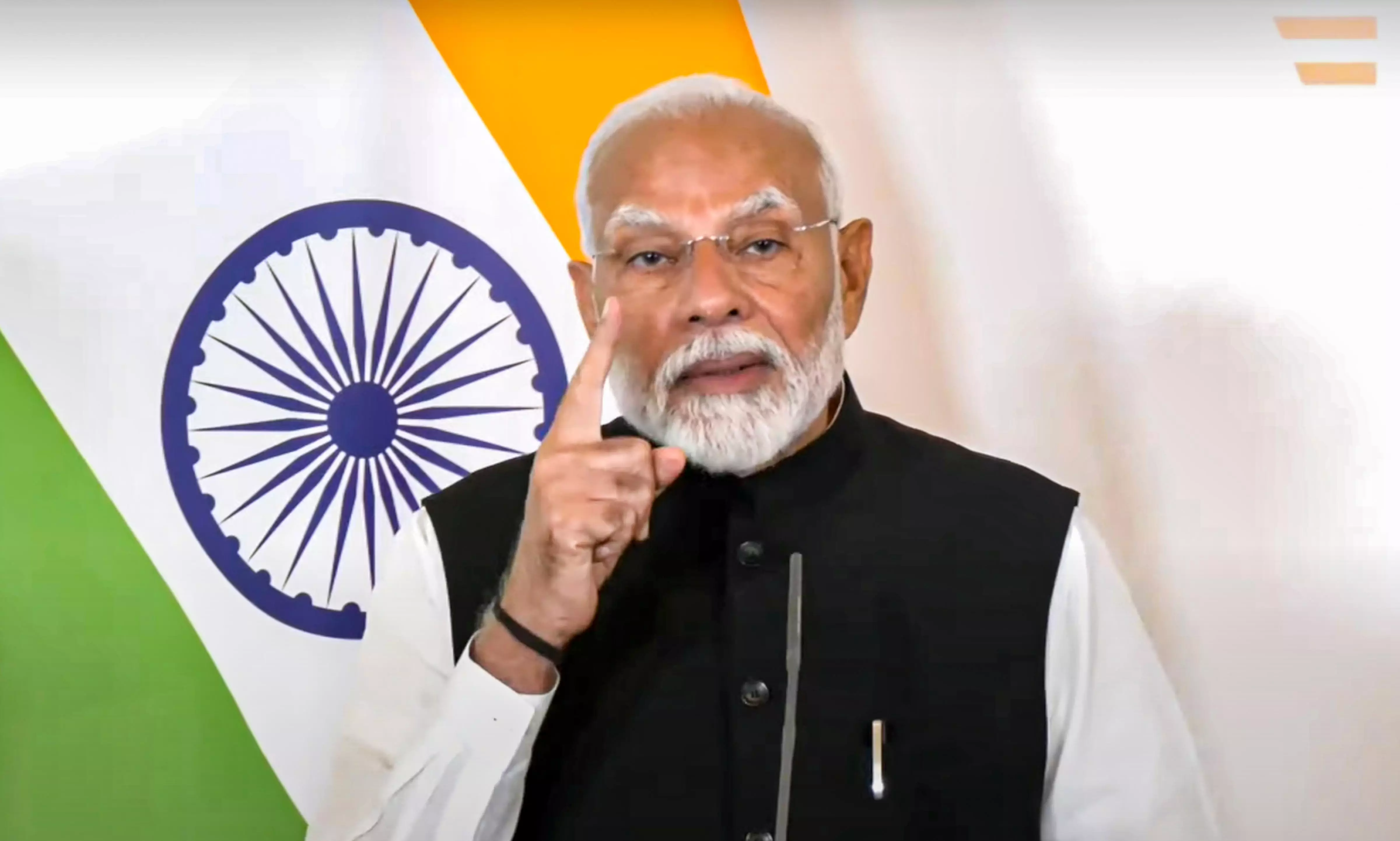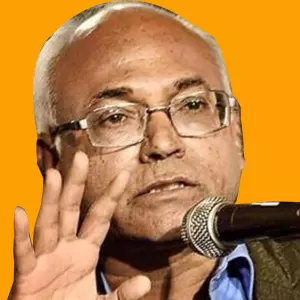
- Home
- India
- World
- Premium
- THE FEDERAL SPECIAL
- Analysis
- States
- Perspective
- Videos
- Sports
- Education
- Entertainment
- Elections
- Features
- Health
- Business
- Series
- In memoriam: Sheikh Mujibur Rahman
- Bishnoi's Men
- NEET TANGLE
- Economy Series
- Earth Day
- Kashmir’s Frozen Turbulence
- India@75
- The legend of Ramjanmabhoomi
- Liberalisation@30
- How to tame a dragon
- Celebrating biodiversity
- Farm Matters
- 50 days of solitude
- Bringing Migrants Home
- Budget 2020
- Jharkhand Votes
- The Federal Investigates
- The Federal Impact
- Vanishing Sand
- Gandhi @ 150
- Andhra Today
- Field report
- Operation Gulmarg
- Pandemic @1 Mn in India
- The Federal Year-End
- The Zero Year
- Science
- Brand studio
- Newsletter
- Elections 2024
- Events
- Home
- IndiaIndia
- World
- Analysis
- StatesStates
- PerspectivePerspective
- VideosVideos
- Sports
- Education
- Entertainment
- ElectionsElections
- Features
- Health
- BusinessBusiness
- Premium
- Loading...
Premium - Events

Lack of absolute majority may have thwarted plans for now, but the saffron outfits are known for their perseverance — it's their very strength
One of the key narratives that dominated the 18th Lok Sabha polls was that the BJP may rewrite the Constitution and abolish reservation if it succeeds in clinching 400 seats.
Prime Minister Narendra Modi himself set the narrative by giving the slogan ‘Ab ki baar 400 paar’ ('We will cross 400 this time'). The slogan gave impetus to several leaders of the BJP and the Rashtriya Swayamsevak Sangh (RSS) to claim that the party will change the Constitution once it gets an absolute majority in the Lok Sabha.
Poll narrative on Constitution, quota
These claims were followed by a strange poll manifesto released by the BJP. The title of the manifesto, ‘Modi Ki Guarantee,’ itself gave the message that Modi was a much bigger entity than the BJP-RSS combo, churning rumours that a dictatorship might be in the offing along with a drastic change in the nation's political structure.
It was not yet known what kind of system the new government would bring in, but a vast number of non-BJP voters guessed that something unwanted for the nation was waiting to happen.
At the same time, a perception began to take root among the Other Backward Class (OBC), Dalits and Adivasis that the RSS-BJP combine was slowly moving towards dismantling the reservation system. This feeling began gaining ground after the BJP-led government introduced a 10 per cent reservation quota for the Economically Weaker Sections (EWS) exclusively for the upper castes and started privatising major Public Sector Undertakings (PSUs).
Anti-Mandal stand of BJP, RSS
In its second term, the National Democratic Alliance (NDA) government led by Modi implemented many of the BJP’s longstanding agendas including the abrogation of Article 370, and the hurried inauguration of the Ram temple in Ayodhya, cementing fears that abolition of reservation may be next on the list.
I was a witness to the strong anti-Mandal stand of the RSS and the BJP in the 1990s, as I was one of the strong pro-Mandal writers and activists at that time.
However, they gradually softened their stand after realising that a vast number of the shudras, also known as OBCs, will leave the organisation if the leadership remains rigid.
Only after the Mandal judgment of 1992 and implementation of the recommendation of the Mandal Commission – to grant 27 per cent reservation to OBCs in Central government jobs and other public sectors – by the then PV Narasimha Rao government, did they realise that OBC reservations cannot be taken lightly.
OBC leaders in Bihar
But the top leadership of the RSS was very angry with BP Mandal, who led the commission that was formed by the then Janata Party government in 1977 to identify the backward classes of India, and the pro-OBC voices in politics, especially in Bihar.
Within Bihar, the RSS opposed leaders like Mandal who emerged from the OBC ranks within the BJP. Instead, the outfit backed OBC leaders like Kalyan Singh and Modi, who propagated Hindutva pitches and the ‘Ram Mandir’ agenda.
Even now, the BJP does not have a strong OBC leader in Bihar. Over a period even the Banias (moneylender caste) of Bihar took OBC certificates. The late Sitaram Kesri and Sushil Kumar Modi are some examples.
Congress stance, from Rajiv to Rahul
Even though the Congress too opposed implementation of the Mandal commission report by the then VP Singh government, its protest was not driven by an anti-reservation ideology. It had to do more with the Rajiv Gandhi-helmed party’s bitterness with Singh, who had ended the Congress monopoly in electoral politics by defeating it in the 1989 Lok Sabha polls.
The same Congress party in 2006 implemented OBC reservations in the Central educational institutions and also proposed reservations in the private sector.
The BJP, in contrast, was always opposed to reservations in the private sector. That was one reason why a majority of monopoly houses turned against the Congress.
The fundamental difference between the RSS-BJP combo and the Congress is that the saffron party, besides being communal, is also casteist.
After Rahul Gandhi emerged as the face of the Congress party during the BJP’s rule under Modi, he took a categorical pro-reservation stand. His campaign for caste census and removing the 50 per cent cap imposed by the Supreme Court during the recent polls reflects the Congress’ position on reservation.
Quota vs Mandir movement
Modi, who became prime minister on the credentials of being an OBC, was a strong anti-reservationist and one of the main organisers of the Mandir movement (to build the Ram temple in Ayodhya) when the struggle for reservation was at its peak.
As the RSS tightened its grip on OBCs leaders and activists in its ranks, many OBCs in the organisation as well as in the BJP began taking a militant stand on the temple issue at the behest of the leadership.
The OBC reservation at the national level was seen as a victory for Periyar ideology and the end of the RSS-BJP upper caste ideology. The idea of annihilation of caste was seen by the RSS as its nemesis. Ambedkar was brought to a new life by the VP Singh government to the utmost dislike of the RSS-BJP at that time along with implementing OBC reservation.
Presidential rule system
After the 2014 elections, there was talk of changing the Indian political system to presidential rule after the BJP-led NDA won a clear majority.
The idea that was in the collective consciousness of India’s voters was brought back to life when the INDIA bloc anchored its campaign on the ‘changing Constitution’ narrative.
Fortunately, a large number of voters realised that the Constitution may indeed be in danger. The fact that the BJP has been critical of the current Constitution and may be wanting to alter it became the street corner talk.
People took a cue from the abrogation of Article 370 and were certain that the BJP may as well abolish reservation for OBC, SCs and STs if it had its way. This gave birth to an idea that the party must be stopped from winning the elections.
Maximum privatisation
The voters were partially successful by stopping the party from getting an absolute majority in the lower house of Parliament.
The determination of industrialists like Gautam Adani and Mukesh Ambani to fully back the BJP from behind was very clear. Since most of the monopoly companies are owned by those hailing from the upper castes, there is a view among them that during the BJP regime maximum privatisation has to be pushed.
Several pro-privatisation economists hailing from the upper castes were also appointed to government structures like the NITI Aayog by the BJP. Economists like Arvind Panagariya, including those who are American citizens, have been entrusted with heading key institutions (Panagariya has been appointed the chancellor to the Nalanda University in Bihar).
But danger still lurks
However, the danger to the Constitution is not over yet. The recent Lok Sabha election has only stopped the RSS-BJP from moving forward in rewriting the Constitution and abolishing reservations for the time being.
The organisations are known for persevering and working on an agenda with patience till its fruition. That is their strength. They worked on the Jammu and Kashmir and the Ram Janmabhoomi issues for decades before successfully achieving their agenda.
So, it is safe to assume they will carry forward the agenda in such a manner that will convince the OBCs, Dalits, and Adivasis in their ranks that karma bhoomi (land of action) and janma bhoomi (motherland) are more important than safeguarding the Constitution and reservation.
Constitution, the saviour
Hindutva is a deeply ingrained ideology. It seeped through caste layers into the societal body. Historically, the Shudras/OBCs, in spite of their numbers, never opposed being treated as the fourth varna (caste) and lived a subordinate life. But the Constitution empowered them and made them conscious and rebellious.
Despite this, there is no urge among them to attain socio-spiritual equality with the Dvijas (Brahmins, Kshatriyas and Vaishyas) who actually run the RSS and the BJP as well as the Hindu religious system. The OBCs and Dalits have not at all realised the importance of spiritual democracy that alone sustains the present constitutional democracy.
Spiritual authoritarianism is going to work towards dismantling this constitutional democracy if not today, then tomorrow. That is the reason why Ambedkar forewarned about that danger.
(The Federal seeks to present views and opinions from all sides of the spectrum. The information, ideas or opinions in the articles are of the author and do not necessarily reflect the views of The Federal.)


